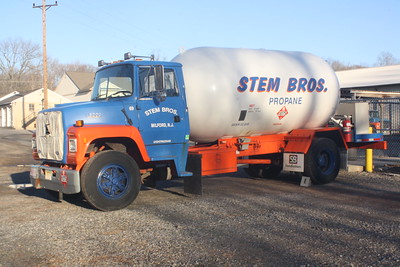
Hey there, trying to navigate the world of energy resources? I get it; it’s like trying to learn a new language. Let’s simplify it together, shall we? Today, our focus is on Green Gas and Propane. These two are buzzing in the energy conversation, each with its list of pros and cons.
We’re all trying to do better for our planet, right? And knowing the ins and outs of these energy sources can help us make smarter, eco-friendlier choices. Are you curious to find out which of these gases could save you some cash? Or which one helps you leave a smaller carbon footprint?
You’re in the right place. Stick with me, and we’ll unpack these complex subjects together. I’ve done the heavy lifting of sifting through all the science-speak, and I’m here to share the gist in plain English. Let’s dive into the world of Green Gas and Propane together and empower ourselves to make better decisions. So, ready for the journey?
A Closer Look at Propane
A. What Exactly is Propane?
Simply put, propane is a type of gas—scientifically known as C3H8. Picture it as a molecule with three carbon atoms, all holding hands in a chain, and each carbon surrounded by hydrogen buddies. Although it’s naturally odorless and colorless, manufacturers add a potent smell to it so that any leaks don’t go unnoticed.
B. Propane: How’s It Made?
You might wonder, “Where does propane come from?” The answer lies in two key processes. First, when we process natural gas, we clean it and separate it into its components, one of which is C3H8. Secondly, this gas also comes into existence during the refining of crude oil, where it’s extracted and collected.
C. Advantages and Disadvantages of Using This Gas

How Efficient is Propane?
When it comes to efficiency, this gas shines. It’s jam-packed with over twice the energy you’d get from the same amount of natural gas, making it a favorite for heating homes, whipping up dinner, or fueling certain vehicles.
Can I Easily Get Propane?
Yes, you can. This gas is pretty accessible, and you can get it almost anywhere globally, either in large tanks or handy portable cylinders. It’s a true multitasker, useful for everything from heating your home to powering industrial equipment.
What about the Environment?
The gas does have a leg up on many fossil fuels, as it emits fewer greenhouse gases when burned. But remember, it’s not renewable, and both extracting and using it does have an impact on our planet’s health.
Will it Burn a Hole in My Wallet?
The cost of propane can bounce around, based on things like the state of the global market, how much is available, and even regional issues. Generally, it can be pricier than natural gas, but its super efficiency can help balance that out. Do take into account the full cost of using propane, including storage and delivery.
So, that’s the lowdown on propane. It’s efficient and versatile, but it does have its environmental and cost-related challenges. As with any energy source, think about what matters most to you and how it fits into your lifestyle and budget.
Read also: Is Propane a Chemical? Understanding the Nature & Properties
A Deep Dive into Green Gas
A. What’s Green Gas Anyway?
When we talk about Green Gas, we’re talking about biomethane or renewable natural gas. It’s a type of biofuel, coming from organic stuff like food waste or agricultural leftovers. Imagine a mixture mainly composed of methane, a little bit of carbon dioxide, and a few other gases.
B. The Making of Green Gas
Wondering how we turn waste into gas? It’s a fascinating process involving either anaerobic digestion or gasification. We take organic matter (think of the leftovers from your dinner or farm waste) and let tiny microorganisms munch on it in an oxygen-free environment. This munching gives us biogas, which we clean and upgrade into Green Gas. This upgraded gas can then be added to the gas grid or used for things like transportation.
C. The Good, the Bad, and the Green of Green Gas
How Efficient is Green Gas?
Green Gas holds its own when compared to natural gas in terms of energy content. It’s a solid choice for heating your home, cooking, or even generating electricity. But bear in mind, the process of making Green Gas can use up more energy than just extracting fossil fuels.
Can I Get Green Gas Easily?
The potential for Green Gas is enormous because organic waste is everywhere. But right now, getting it depends on infrastructure and tech that’s still developing. It’s not as readily available as we’d like, just yet.
What’s the Environmental Impact?
As far as carbon footprints go, Green Gas is a winner. It’s renewable and using organic waste to make it helps with waste management. Plus, it creates a closed carbon cycle, which means it can lower greenhouse gas emissions in the big picture.
What’s it Going to Cost Me?
Currently, it can cost more to produce Green Gas than to extract fossil fuels. That’s because the tech and processes are still maturing. But as technology improves and if we factor in carbon pricing, Green Gas may become more economically attractive in the long run.
So, that’s the scoop on Green Gas. It’s a promising player in the push for sustainable energy, but there are still hurdles to jump when it comes to energy efficiency, access, and costs. It’s going to take continued research and investment to really unlock what Green Gas has to offer. As with any energy source, you’ll want to consider your own needs, values, and circumstances when deciding if it’s the right fit for you.
Read also: Is Propane Dirtier Than Natural Gas? (Which is the Culprit)
Is Green Gas Propane or Is It Like Propane?
So you’re wondering if Green Gas is the same as propane or similar to it, right? Well, they’re not the same, even though they can be used for pretty much the same tasks, like cooking your favorite meal or keeping your house cozy and warm.
Think of propane as an old-school buddy that’s been around for a long time. It’s a fossil fuel that we get from processing natural gas or refining oil. But here’s the kicker – when we burn propane, it lets out carbon dioxide, which isn’t exactly great for our planet. Granted, it’s not as bad as coal or oil, but it still adds to the greenhouse gases.
Now, let’s talk about Green Gas. This one’s a game-changer. We make it from organic waste (yep, things like leftover food or plant waste) through cool processes like anaerobic digestion or gasification. It’s a renewable resource, which means we won’t run out of it, as long as we keep producing organic waste. The best part? When we burn Green Gas, the carbon dioxide it releases doesn’t really add to the atmospheric carbon dioxide, provided we manage the organic waste sources sustainably.
Read also: Is Propane Gas Economical? (Comparison to Other Energy Sources)
Some Brands of Green Gas Are Lubricated. Is Propane?
Sure thing! Propane itself doesn’t come with added lubricants. However, when using it in certain settings like airsoft guns, you may need to add a bit of lubrication yourself.
See, in the airsoft world, some green gas brands already have lubricants mixed in. They do this to keep the airsoft gun’s internal parts running smoothly. If you decide to use C3H8 instead, you’ll need to manually add some silicone oil to your propane tank before filling your airsoft gun. This keeps everything inside the gun in good shape and working well.
So, while this gas isn’t naturally lubricated, you can certainly add a lubricant to it for certain uses like airsoft.
To Make a Conclusion
Navigating through energy options like Green Gas and Propane can feel like a maze. As we’ve seen, both have their perks and pitfalls. Propane is efficient and easy to get but isn’t the best for our planet. Green Gas, while eco-friendly, isn’t as accessible and can cost more.
When choosing your energy source, it’s essential to balance your needs with what’s best for our world. I hope our chat about Green Gas and Propane has given you some food for thought. Keep tuning in for more insights and conversations on energy options that can shape our future for the better.
Feel free to share this info with others who might find it useful. Together, we can make more informed energy choices. After all, the choices we make today carve out the path for our tomorrow. Let’s make them count.

Jeremy is a highly experienced professional propane technician with over 21 years of experience in the industry. Throughout his career, he has gained extensive knowledge and expertise in propane gas installation, maintenance, and repair, as well as in ensuring safety and compliance with industry standards. Mike has worked with various residential, commercial, and industrial clients, providing top-notch services and solutions to meet their propane needs. He is dedicated to his craft and passionate about delivering exceptional service to his clients.







